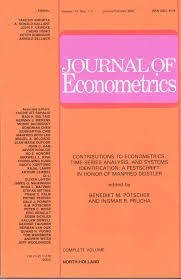

Annika Camehl
Biography
Annika Camehl is an Associate Professor at the Econometric Institute of Erasmus University Rotterdam.
Camehl (née Schnücker) received her PhD from Freie Universität Berlin, Germany in 2018. She was a member of the DIW Berlin Graduate Center. Annika joined Erasmus University Rotterdam in September 2018.
Her main research field is applied econometrics. She focuses on multivariate time series analysis, especially on estimation, model selection and structural identification and the application to macroeconomic questions.
Key publications

List of publications
Camehl, A., Fok, D. and Gruber, K. (2024). On superlevel sets of conditional densities and multivariate quantile regression Journal of Econometrics, 249:.
Camehl, A. (2023). Penalized estimation of panel vector autoregressive models: A panel LASSO approach International Journal of Forecasting, 39(3):1185--1204.